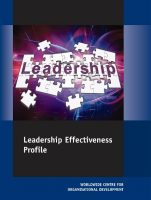What are the qualities of a good team leader?
- A good sense of who they are/who they aren’t.
- They understand their team members’ strengths & liabilities.
- They know how to give positive & negative feedback.
- They can articulate core values.
- They can communicate a compelling vision.
I’ve had a number of conversations lately with church planters. One key area for effective leadership is self-awareness and as I’ve listened, it has been fascinating to hear each describe their strengths and weaknesses. One in particular stands out: he shared that the three things he does well are preaching, one-to-one interaction, and recruiting people to a vision. Based on what I’ve heard him say, he not only has a pretty good grasp on what he does well, but he has also inferred that there are lots of areas where he lacks certain skills and abilities. It was refreshing to hear someone who is clear on what he does well and where he needs help!
Next I asked him to share his vision. His vision was clear, articulate, and thoughtful: to worship corporately with excellence in a manner that invites the Holy Spirit to minister in such a way that will not turn people unfamiliar with the church and faith away; have at least a couple of missional communities in each home; and development of missional leaders and a robust leadership pipeline.
It was not a canned spiel; it came across as if he had intellectually, emotionally, and prayerfully wrestled with God’s calling. What impressed me was that he understood this vision would take time and has made a long-term commitment to live in the community where God has called him, his wife, and his family.
Leadership is both an innate and a learned skill.
The planter shared how hard he works at his communication–and it shows! When I asked him about the launch of their missional communities, he had a strategy to roll them out once they establish some other key ministries so the core group isn’t burned out. The goal of his leadership pipeline is to start new ministries AND be able to generously give away leadership to other new churches in need.
Having a clear sense of who you are is a critical component of leadership.
I’ve lived by this motto that my mom used to share with me and my three siblings as we left for school on most days: “Remember who you are…and who you represent.” This is a good reminder that knowing oneself is a good first step to understanding what God has called us to do.
Here is a very helpful resource to further understand your leadership strengths called the Leadership Effectiveness Profile.
I have found that this tool is a helpful step in gaining self-awareness. Although there are different views about what constitutes leadership excellence, it is possible to distill the key themes or broad categories from which most good leaders will draw to a greater or lesser extent. In total, eight categories are identified, and these are:
- Emotional intelligence
- Contextual thinking
- Directional clarity
- Creative assimilation
- Change orchestration
- People enablement
- Reciprocal communication
- Driving persistence
I find the categories to sound a bit technical, but as I’ve studied each, it is clear to understand. This would be a really helpful exercise if you are seeking a baseline for your leadership or for the leadership of those you are developing.
Photo by Usman Omar on Unsplash


